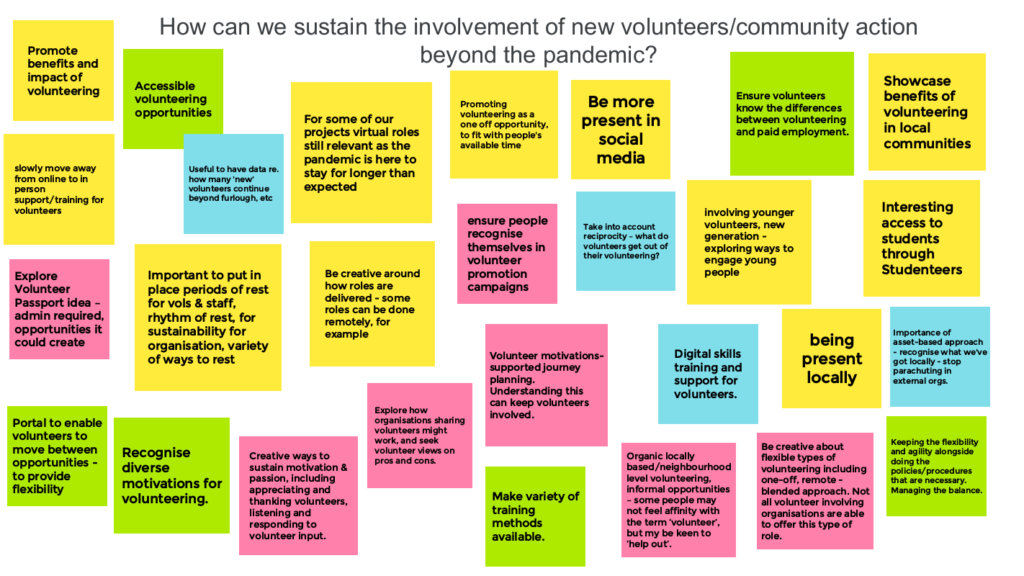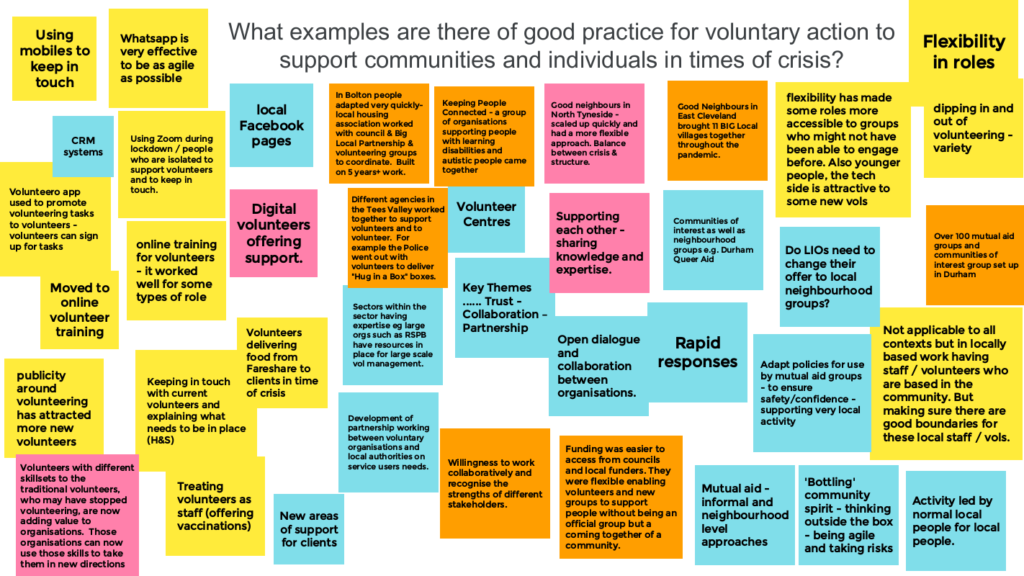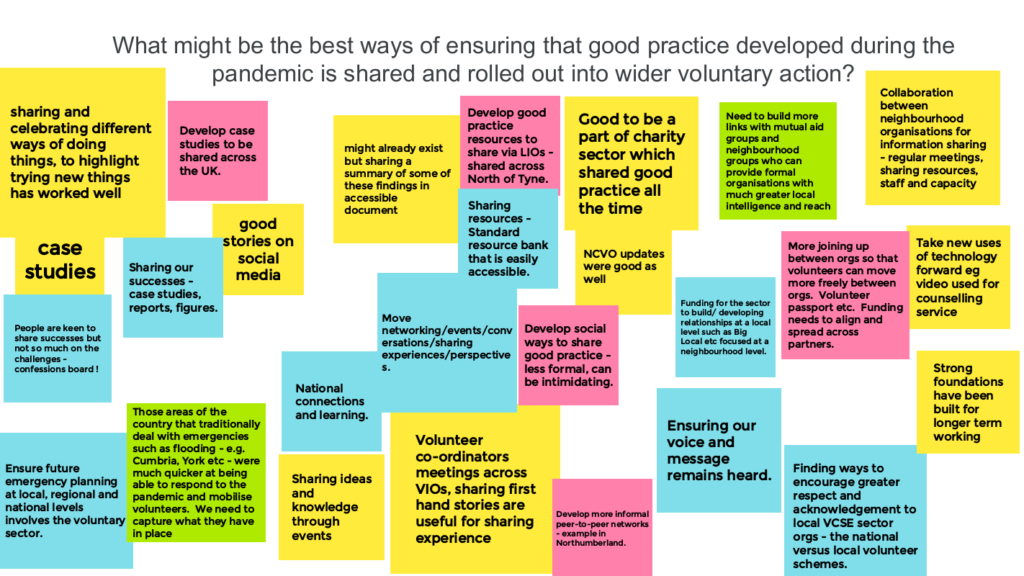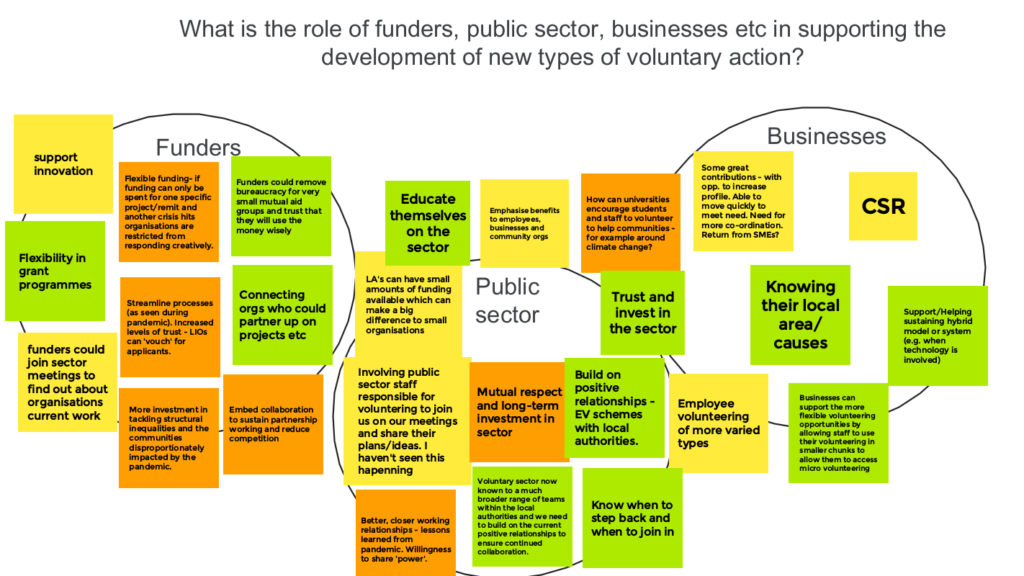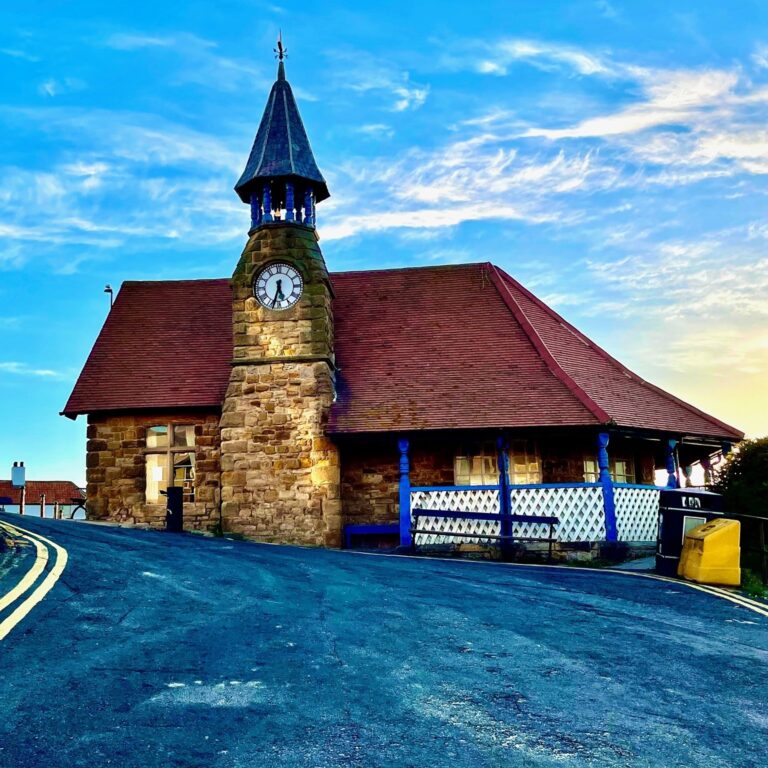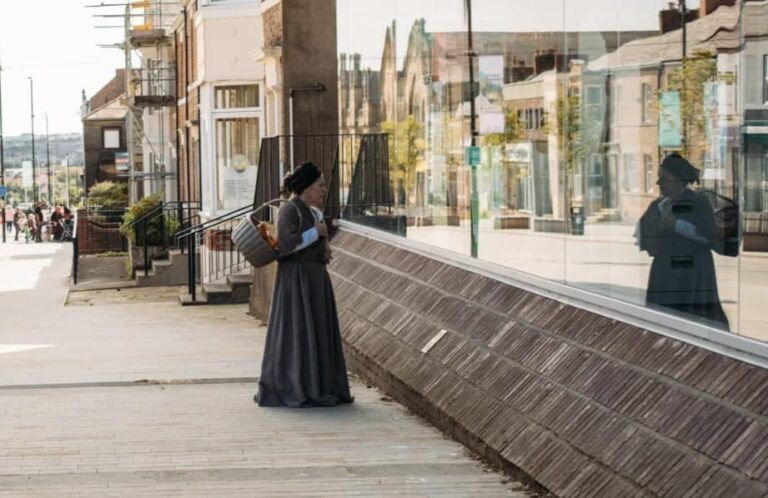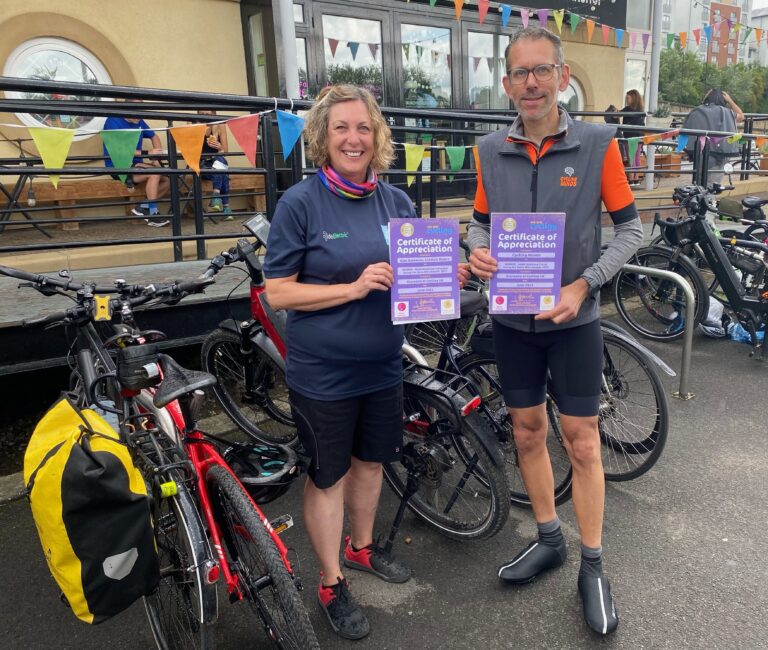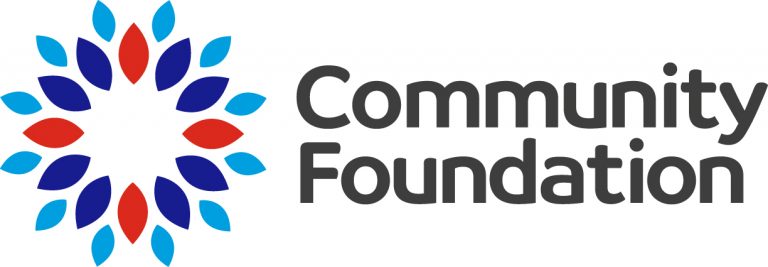On 14 July 2021, VONNE hosted an online event, funded by National Lottery Community Fund and attended by organisations from across the North East, to consider lessons learned from voluntary action over the previous year to help out during the pandemic.
As an introduction to the discussions, Professor Irene Hardill and Dr Laura Crawford from Northumbria University provided an overview of the national study into Mobilising UK Voluntary Action in a Time of Pandemic, which was led by NCVO, The Institute for Volunteering Research and a number of universities, including Northumbria University which led much of the research. The study considered four different themes – mutual aid and neighbourhood activity; collaboration and partnership; inequality and need; and innovation.
The study has found that the speed at which local groups formed to support members of their community was remarkable, with 4000 mutual aid groups registering on the COVID Mutual Aid UK website during the first lockdown in April 2020. These informal organisations were often able to respond much more quickly than the formal organisations and were able to help engender trust within communities, but their informal nature has made it difficult for them to operate at times and to sustain the enthusiasm of volunteers.
During the pandemic there has been an increase in the spirit of collaboration and partnership across sectors and between organisations. Bureaucratic processes were streamlined and data was shared to ensure that support reached the most vulnerable. As local government was not always best placed to respond, there was increased work between local authorities and local charities and this partnership working appears to be continuing.
The pandemic exacerbated and brought into sharp focus pre-existing inequalities, as well as highlighting new areas of need. Many voluntary organisations found that they were unable to deliver support remotely and online and this in turn impacted on some of the most vulnerable groups, some of whom did not have the means to access online support. The impact on health and wellbeing of older adults who had previously volunteered but had been forced to step down from their Volunteering roles and shield at home was noted.
The pandemic did however accelerate modernisation and encourage more agile ways of working. Digital technology was increasingly used to mobilise and manage volunteers, and many charities moved to online support.
Moving on, the Mobilising Voluntary Action project will consider how the protracted nature of the crisis has impacted motivations to volunteer and the changing nature of volunteer roles and the needs they are responding to. Consideration will be given to which parts of the voluntary sector may require further support to re-emerge and re-engage in a post COVID world, and what ‘innovations’ or ‘learnings’ may be here to stay.
As a further lead-in to roundtable discussions, brief overviews of action taken during the pandemic were provided by:
North Tyneside VODA – perspectives on voluntary action from an infrastructure organization.
Dreamshine CIC – perspectives on voluntary action from a volunteer-involving organization
Dwellbeing Shieldfield – perspectives on voluntary action from a cooperative of residents and community members set up to shape life in Shieldfield, Newcastle
Roundtable Discussions
Discussions took place in breakout rooms, centred around four key questions:
- How can we sustain the involvement of new volunteers/community action beyond the pandemic?
- What examples are there of good practice for voluntary action to support communities and individuals in times of crisis?
- What might be the best ways of ensuring that good practice developed during the pandemic is shared and rolled out into wider voluntary action?
- What is the role of funders, public sector, businesses etc. in supporting the development of new types of voluntary action?
How can we sustain the involvement of new volunteers/community action beyond the pandemic?
The Jamboard created to capture all of the comments made during the discussions is attached.
Key points made include:
- Organisations should be more creative about flexible types of volunteering, such as one-off volunteering; remote volunteering; and blended approaches to volunteering. Whilst not all organisations are currently able to offer these types of role, more of these types of roles could be carved out.
- Organisations need to think creatively about ways in which they can sustain motivation and passion amongst their volunteers, including how they can best express appreciation and thanks to volunteers, as well as supporting wellbeing, and listening and responding to volunteer input.
- Further consideration should be given to the concept of volunteer passports to enable volunteers to take up and move between volunteer roles more easily
- More innovative ways to encourage informal, neighbourhood level voluntary action should be developed. Whilst some people shy away from formal volunteering, they are nonetheless keen to help out in their local community.
What examples are there of good practice for voluntary action to support communities and individuals in times of crisis?
Key points made include:
- Harnessing community spirit through Good Neighbours schemes in East Cleveland and North Tyneside which can be much more agile than some other types of volunteering projects
- Use of online resources and apps to train, support and manage volunteers
- Much more visible role of volunteers in the media, promoting a positive image of what voluntary action can achieve
- A greater willingness for collaboration between voluntary organisations to share volunteers and share resources to support volunteers. For example, organisations such as RSPB and RVS have resources in place for management of large numbers of volunteers. Additionally, there was greater collaboration between the VCSE sector and public sector agencies (such as the police working alongside volunteers in Tees Valley)
What might be the best ways of ensuring that good practice developed during the pandemic is shared and rolled out into wider voluntary action?
Key points made include:
- Increased networking between volunteer-involving organisations, such as those in Durham and Newcastle, in areas which currently do not have such structures
- More informal peer-to-peer networks, such as the Northumberland Community network, and greater networking with local neighbourhood groups and mutual to provide greater reach and local intelligence
- Ensure future emergency planning partnerships include voluntary sector reprentation. Areas such as Cumbria and York, which have historically provided effective emergency responses to flooding, were much quicker to put a response to the pandemic in place and we need to learn from those areas.
- More shared case studies, from which organisations can learn, need to be shared widely
What is the role of funders, public sector, businesses etc. in supporting the development of new types of voluntary action?
Key points made include:
- Funders should consider removing bureaucracy for small neighbourhood groups and mutual organisations as far as possible, and trust that funds will be spent wisely for the benefit of the community
- The public sector should build positively on the relationships developed with voluntary organisations during the pandemic. A much greater range of teams across the public sector now have a greater appreciation of the way that volunteers are able to provide support in the community and there is greater scope for partnership working
- Businesses could support employees to use volunteering time in smaller chunks across a longer timescale, allowing then to volunteer for a couple of hours to do some of the informal volunteering in which they have become involved whilst working from home/on furlough

